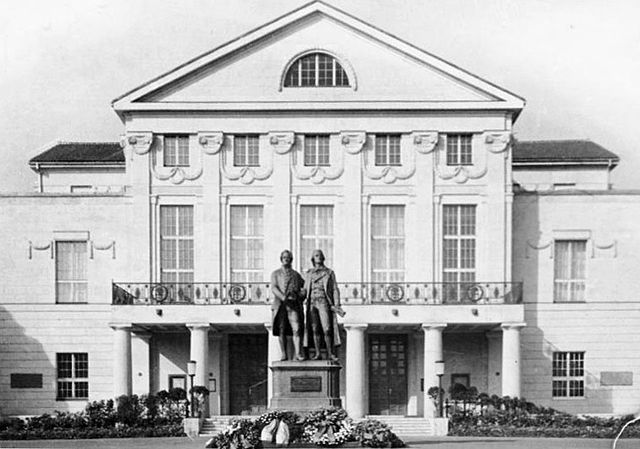The Weimar National Assembly, officially the German National Constitutional Assembly, was the popularly elected constitutional convention and de facto parliament of Germany from 6 February 1919 to 21 May 1920. As part of its duties as the interim government, it debated and reluctantly approved the Treaty of Versailles that codified the peace terms between Germany and the victorious Allies of World War I. The Assembly drew up and approved the Weimar Constitution that was in force from 1919 to 1933. With its work completed, the National Assembly was dissolved on 21 May 1920. Following the election of 6 June 1920, the new Reichstag met for the first time on 24 June 1920, taking the place of the Assembly.
Weimar National Assembly
Friedrich Ebert
Philipp Scheidemann
The Constitution of the German Reich, usually known as the Weimar Constitution, was the constitution that governed Germany during the Weimar Republic era (1919–1933). The constitution declared Germany to be a democratic parliamentary republic with a legislature elected under proportional representation. Universal suffrage was established, with a minimum voting age of 20. The constitution technically remained in effect throughout the Nazi era from 1933 to 1945 as well as during the Allied occupation of Germany from 1945 to 1949, though practically it had been repealed by the Enabling Act of 1933 and thus its various provisions and protections went unenforced for the duration of Nazi rule, and after World War II, the power of the Allied Control Council and four occupying powers once again stood above the provisions of the constitution.

The Weimar Constitution in booklet form. Article 148 of the Constitution required that each school student receive a copy of the Constitution at the time of their graduation.




